Coordination and Support
- The ANIMAL DIVISION has served as a communications center for lost and injured animals and a new program underway will allow Puerto Rico animal shelters to be interconnected by a computerized communications system developed by PETWARE of San Jose, California that will also for the first time permit the collection and dissemination of reliable and timely statistics regarding the serious stray animal problem confronting Puerto Rico. The ANIMAL DIVISION works with local newspapers and radio stations as well as animal shelters and volunteers to coordinate this effort.
- In August of 1996, the Foundation hosted the First Forum on Animal Welfare for Puerto Rico at its facilities in Cidra. Over 100 people came from throughout Puerto Rico and some 19 organizations were represented. The usual bickering among groups and individuals was replaced by a common purpose and the seeds for a united plan were sewn. Everyone agreed to work together in resolving what they considered to be their chief obstacles: Funding and lack of Government Support. A guest speaker, Dr. Isis Johnson, DVM also spoke about her efforts from Mississippi to run an organization she founded called the Puerto Rico Street Animal Project.
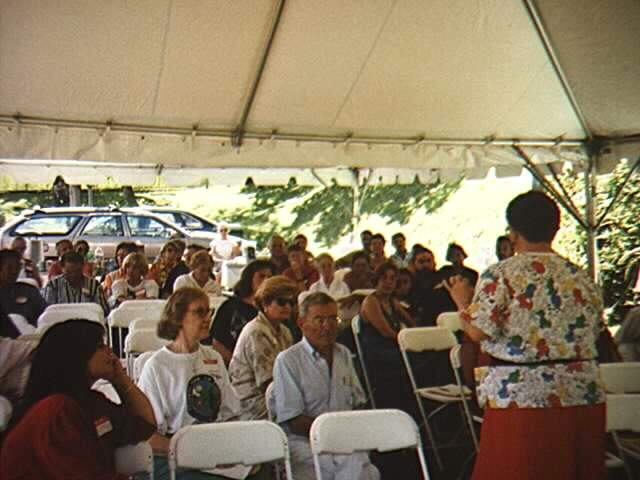
- Following the Forum, a draft plan was prepared and circulated together with some suggested definitions for working groups. A representative from the HSUS together with two representatives from the World Society for Protection of Animals visited the Island in early October to assess the situation. This created some bitterness as the visitors were perceived to be favoring certain groups operating shelters with which they had previously been in contact with and the feeling was that they snubbed the majority of those that are involved in animal welfare in less traditional ways. This rancor was further aggravated at the American Humane Association's Annual Convention in Miami when the HSUS led the WSPA and the AHA in appearing to orchestrate a Puerto Rico initiative by hurriedly creating working committees and selecting certain "volunteers" from a small and select group of attendees from Puerto Rico. Many at the meeting protested the manner in which the committees were arbitrarily created and most of all objected to the naming of so-called "point persons" to organize activities in Puerto Rico without doing so at a meeting where a majority of persons in P.R. could be present. In specific, the "point persons" named were all characterized as being individuals who enjoyed little or no support from the majority of the rank and file animal welfare related groups and individuals in Puerto Rico. The overall objections to the HSUS/AHA/WSPA initiative were related to form not substance as everyone was in agreement that for the first time the stateside groups had agreed to join forces and work together in helping Puerto Rico. There was total acceptance on the part of the Puerto Rico groups to gratefully accept any potential assistance that may be available as a result of this initiative.
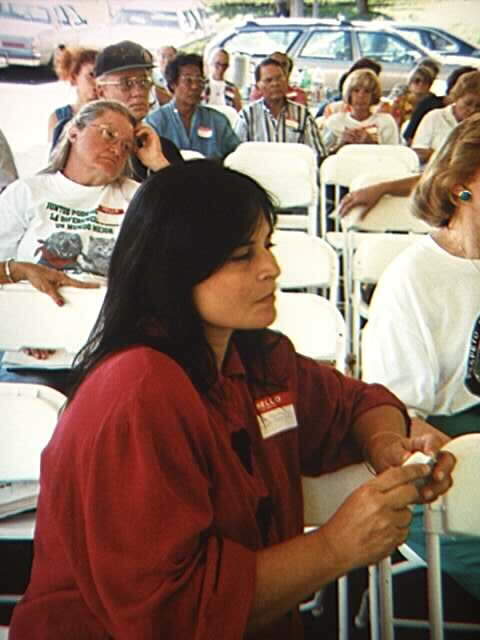
- On November 10th, the FOUNDATION hosted a Second Forum in Cidra. All of the animal welfare groups were once again invited to attend and vote on a plan of action as well as the establishment of working committees to help implement the Plan.
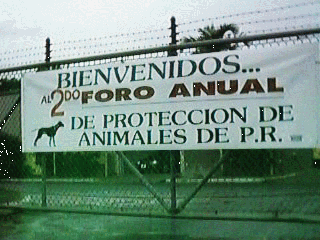
Approximately 60 people attended the second meeting representing 17 of the 28 known Puerto Rico based animal welfare groups. Another two called to say they would be unable to attend but expressed their support. Unfortunately, the "point persons" who volunteered in Miami and the organizations to which they belong did not attend. Also attending were several veterinarians, the Director of Planning for the Puerto Rico Civil Defense and a representative from the Puerto Rico Department of Environmental Health. Each representative signed a certificate stating that he/she was authorized to vote on behalf of the organization he/she represented.
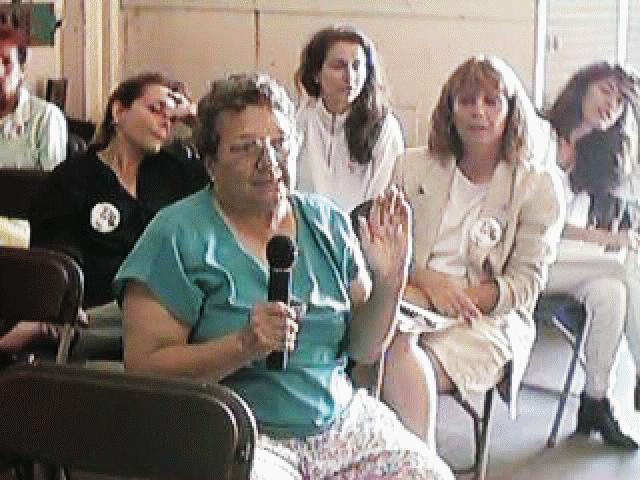
(From left to right) Karen Fehrenbach of Save-A-Sato, Martha Lopez of Animal Rescue, Celeste Arzuaga of the Basta Ya Movement, Guigui Freire and Natalie Loubriel of Grupo en Defensa de los Animales
Animated discussion took place regarding the Plan and the various committees proposed. In the end, both the Plan and the Committees were approved unanimously. In addition, a resolution was passed to inform the US based groups of the results of the Meeting and to request their assistance and cooperation. Most of those present volunteerd for one of the Committees established.
Nearly everyone present spoke of the need for cooperation and once again they urged that the few groups not present reconsider and join with the majority in working as a team to improve animal welfare in Puerto Rico. Mr. Loiz of the Civil Defense spoke of his support for the group's efforts and outlined some of the ways the Civil Defense could help.
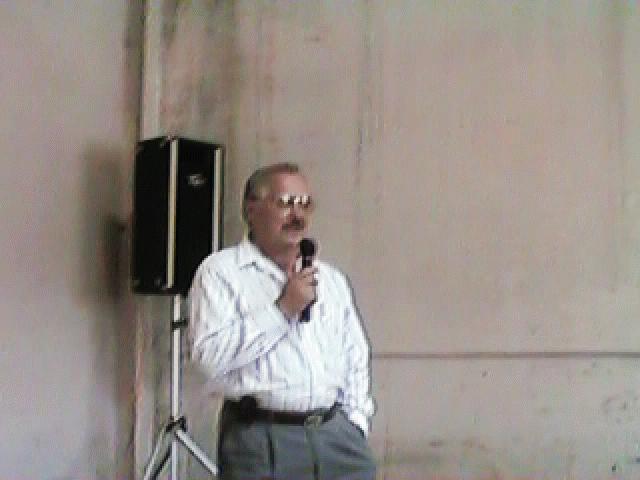
Mr. Loiz, Director of the Puerto Rico Civil Defense Office of Planning, addressing the Forum
The assembled groups agreed that to begin, it was necessary to inform the US organizations as to what specific needs existed. Accordingly, they agreed that until specific projects could be fully identified, the following assistance should be requested:
Development of a fund raising campaign to establish a general assistance fund
Technical assistance in preparation of budgets and start-up of regional shelters
Training of Civil Defense in Emergency Response to animal issues in time of disaster
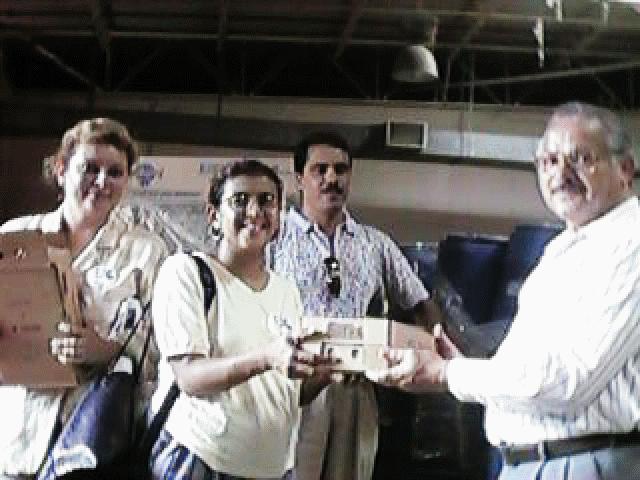
(From left to right) Gladys Penchi and Mayra Santiago of the Asociacion Protectora de Animales de San German receive donated food from Mr. Loiz of the Puerto Rico Civil Defense.
The meeting ended with the distribution of dog and cat food that had been donated by Master Foods (KalKan) and the New York Branch of the ASPCA.

